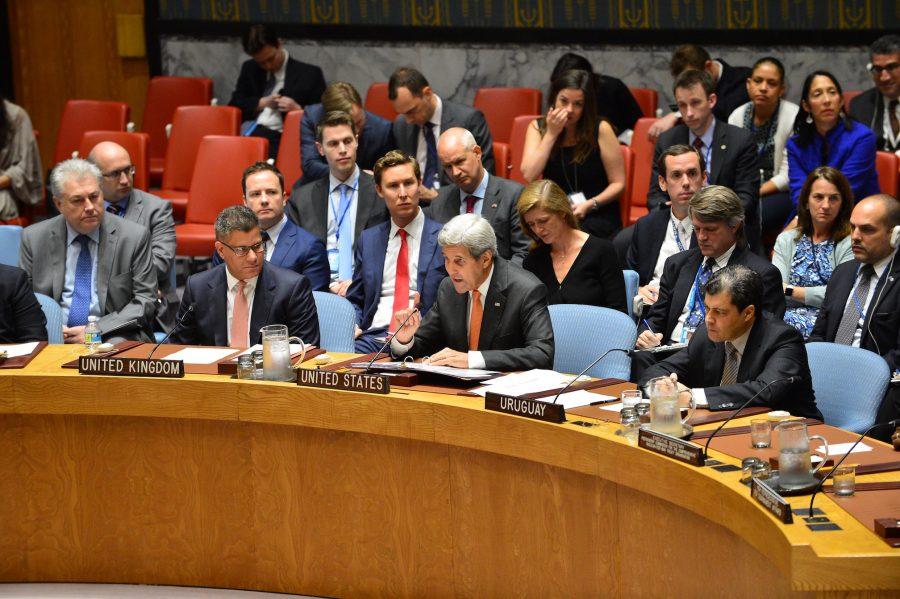Are Israeli settlements the true obstacle to peace?
February 11, 2017
In recent weeks, Israeli settlements and development plans on the disputed land of the West Bank have come under legal challenge from the United Nations. On December 23, Resolution 2334, which condemns Israeli settlement activity, passed 14-0 (with an abstention by the United States). The resolution voiced “grave concern that continuing Israeli settlement activities are dangerously imperiling the viability of the two-State solution.”
One Palestinian official, well-known diplomat Saeb Erekat, responded in support, saying, “The international community has told the people of Israel that the way to security and peace is not going to be done through occupation, but rather through peace, ending the occupation and establishing a Palestinian state…”
The same Saeb Erekat stood by his late leader Yasser Arafat during Palestinian rejections of Israeli-proposed peace, and a proposed transfer of the West Bank back to the Palestinians’ control. His words bring up important questions about why the international community is so vehemently opposed to Israeli settlement activity. Are Israeli settlements the true obstacle to a lasting peace?
The answer is no. The reasoning lies within Israel’s history. Prior to 1967, when the West Bank was controlled by Jordan, and Israel was confined to its original pre-1967 borders, there was no Jewish settlement activity in the West Bank. Yet, terrorist attacks and Arab invasions were continually launched against Israel before 1967, endangering both Jewish and Arab residents of Israel.
Different interpretations of international law are rooted in different motivations for Israelis and Palestinians. Palestinians point to the Fourth Geneva Convention, whose laws dictate that military powers may not allow settlement on occupied sovereign land. Meanwhile, Israel repeatedly highlights that the Convention does not apply directly to their actions because the sovereignty of the Palestinians in the West Bank was continually unclear before and after 1967, and Israel’s occupation of the land was in self-defense. Aggression by Arab nations towards Israel before the occupation of the West Bank points to a greater regional dissatisfaction about Israel’s presence.
Critics of Israel believe that Israeli settlement activity is a barrier to peace and the stimulant of terrorism. Then, why did Hamas and Palestinian terrorists in Gaza launch a barrage of indiscriminate missile fire into southern Israel years after Israel intentionally abdicated all Jewish activity and settlements from the Gaza strip in a quest for peace? It is because Israeli settlements are not the reason behind the lack of agreement between the two parties.
In general, I disagree with increased settlement activity. I believe it causes resentment amongst Arab neighbors towards Jews and Israel, and it gives critics an excuse to attack Israel’s legitimacy. However, the true reason why a lasting peace has not been achieved in the holy land does not lie in Israel’s civilian settlements but in the Palestinian leadership.
Until Palestinian leaders fully accept offers of statehood such as those proposed by Israel and the international community in 1948, 1993, 2001, and 2008, a lasting peace will not be achieved. These failed deals even set out an Israeli withdrawal from much of its previous settlement activity. If history is any indication, even abdication of settlements likely would have led to little progress in the peacemaking arena.
Whether Israel has settlements or no settlements, or if they promise to remove them or not, Israel will still be subject to violence. So, the UN should hold Palestinian leaders accountable next time on the “viability of the two-state solution.” And hopefully, the future will come with Palestinian leaders who will sit down again in good faith to discuss and finalize agreements with their Israeli neighbors, and choose peace, not more conflict.




